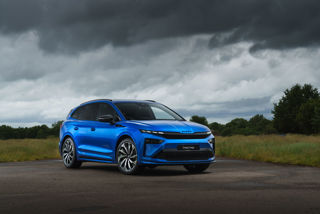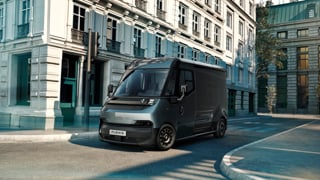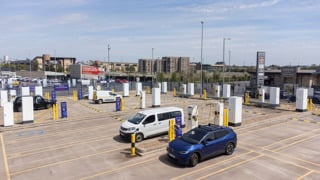By Paul Hollick, chair of Association of Fleet Professionals (AFP)
Everyone working in the fleet sector knows van electrification isn’t working in anything like the same way as it has for cars, and there is limited potential for this to change in the short-term medium term.
The reasons behind this are widely known but worth repeating. The electric vans available are expensive and don’t offer the range and payload that mean fleets can easily make a like-for-like swap with their existing diesel vehicles, while charging remains an issue for many operators.
At the same time, there are no real incentives in place. Electric company cars have taken off not just because they are practical for day-to-day use but thanks to their very low benefit-in-kind taxation.
It makes huge financial sense for drivers to swap. There are few and limited equivalent advantages for vans.
Against this backdrop, there is no sign of the new Labour government abandoning the ZEV Mandate for vans, which specifies 10% of all van sales must be electric this year, rising to 70% by 2030 and 100% by 2035.
In fact, they are committed to bring the total non-ZEV ban forward to 2030. Massive electric van oversupply is heading down the tracks and many fleets will no doubt simply choose to hang onto their existing diesels for longer.
You don’t have to be a fleet management expert to recognise that something will have to give within this scenario, and exactly where the cracks and fissures will appear is something that we at the AFP have been pondering.
One potential answer in terms of supply would be more hybrids, something that is currently gaining ground in the new car market as a bridge to motorists adopting fully electric vehicles.
However, in the car sector, demand for hybrids is largely being met by updating older technology and keeping it in production for longer. While there are a handful of hybrids available in the van sector, choice is limited.
That leaves the ball very much on the Government’s side of the court and the question is, will they force van electrification by adopting more of a carrot or stick approach?
The answer to this question probably lies in finances. The Treasury’s mantra is that money is very tight, so the potential for finding ways of subsidising the electric van market are likely to be somewhere between small and non-existent.
Instead, it seems possible that there will be moves to deter ongoing diesel use. This could be done in a number of ways including road fund licence, fuel duty, parking charges, and larger Clean Air Zones which tax all diesels.
The aim of this move would be to force more businesses to take a closer look at electric vans but the problem is that the difference in running costs and operational savings when it comes to diesel versus electric are considerable.
Any tax increase would have to be almost unreasonably substantial to make this happen, which doesn’t seem to fit the tenor of the new Government.
Really, we’d like conversations between the fleet sector and ministers to be taking place as soon as possible to try and find an answer to this problem.
It’s an issue that is not going away and will only become more acute as the ZEV Mandate forces electric van production to increase relatively quickly.




















Login to comment
Comments
No comments have been made yet.